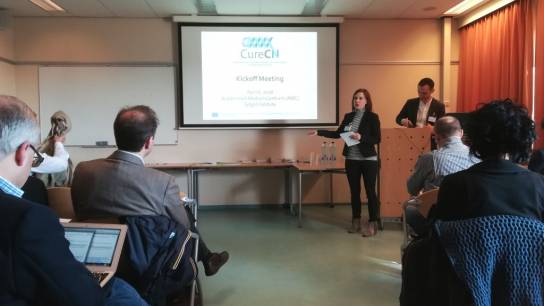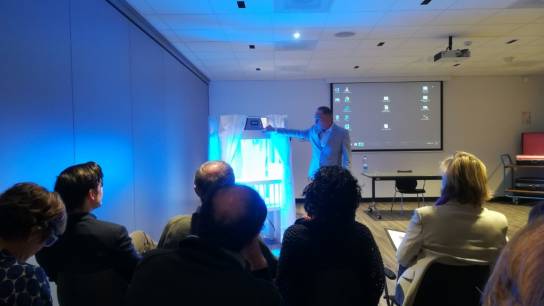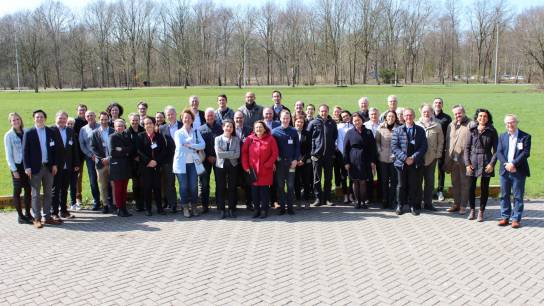New Research Project CureCN Aims to Cure the Ultra-Rare Crigler-Najjar Syndrome
11 international partners from academia, hospitals, healthcare companies and patient organisations meet for official project kick-off in Amsterdam on April 6-7
The new European research project CureCN focuses on developing a curative gene therapy for the ultra-rare liver disease Crigler-Najjar syndrome (CN) and to make the treatment available to patients. The project includes a clinical trial to prove the safety and efficacy of the gene therapy for the so far incurable liver disorder. The project is funded under the EU Framework Programme for Research and Innovation Horizon 2020 with a total budget of € 6.25 million.
Crigler-Najjar is an extremely rare, life-threatening liver disease that affects about one in a million individuals at birth. Caused by the deficiency of a liver-specific substance (uridine diphosphate Glucuronosyltransferase 1A1), toxic unconjugated bilirubin is accumulated in serum and body tissue leading to irreversible neurological damage in the brain. Currently, there is no curing treatment available apart from liver transplantation. Treatment with phototherapy reduces the symptoms, but is very debilitating and loses its efficacy over time.
The main objective of CureCN is thus the development of an innovative gene therapy based on liver gene transfer with an adeno-associated virus (AAV). AAV vector-mediated gene therapy has already shown promising results in preclinical trials. First market approvals for other gene therapies have already been obtained and are also envisaged for the treatment examined in CureCN.
“Our goal is to provide a healing treatment for very young patients, as well as for older patients with a possible pre-existing immunity to AAV that has to be eradicated in the gene therapy process,” said Dr Federico Mingozzi, CureCN coordinator and Head of the Immunology and Liver Gene Therapy team at the laboratory Genethon. “If validated in our clinical trial, AAV-mediated gene therapy could not just cure CN but also heal other inherited liver diseases. Our results could thus change the entire field of in vivo gene therapy.”
In addition to implementing the clinical trial, the project aims to establish the first global CN patient registry compiling data about the natural course of the disease and allowing a comparison of current treatments. As a patient-driven initiative, CureCN is supported by all active European patient associations, located in France, Italy and the Netherlands.
“Our mission is to raise awareness for the disease and provide patients, their families and healthcare professionals with information about the Crigler-Najjar syndrome and existing treatments,” said Marylène Beinat from the French Crigler-Najjar Patient Organisation. “The French, Italian and Dutch patient associations included in CureCN project are happy to support patients during the clinical trial and to join forces against CN within this unique research endeavour.”
The CureCN consortium brings together 11 partners from six European countries who will be working on the project for five years.


